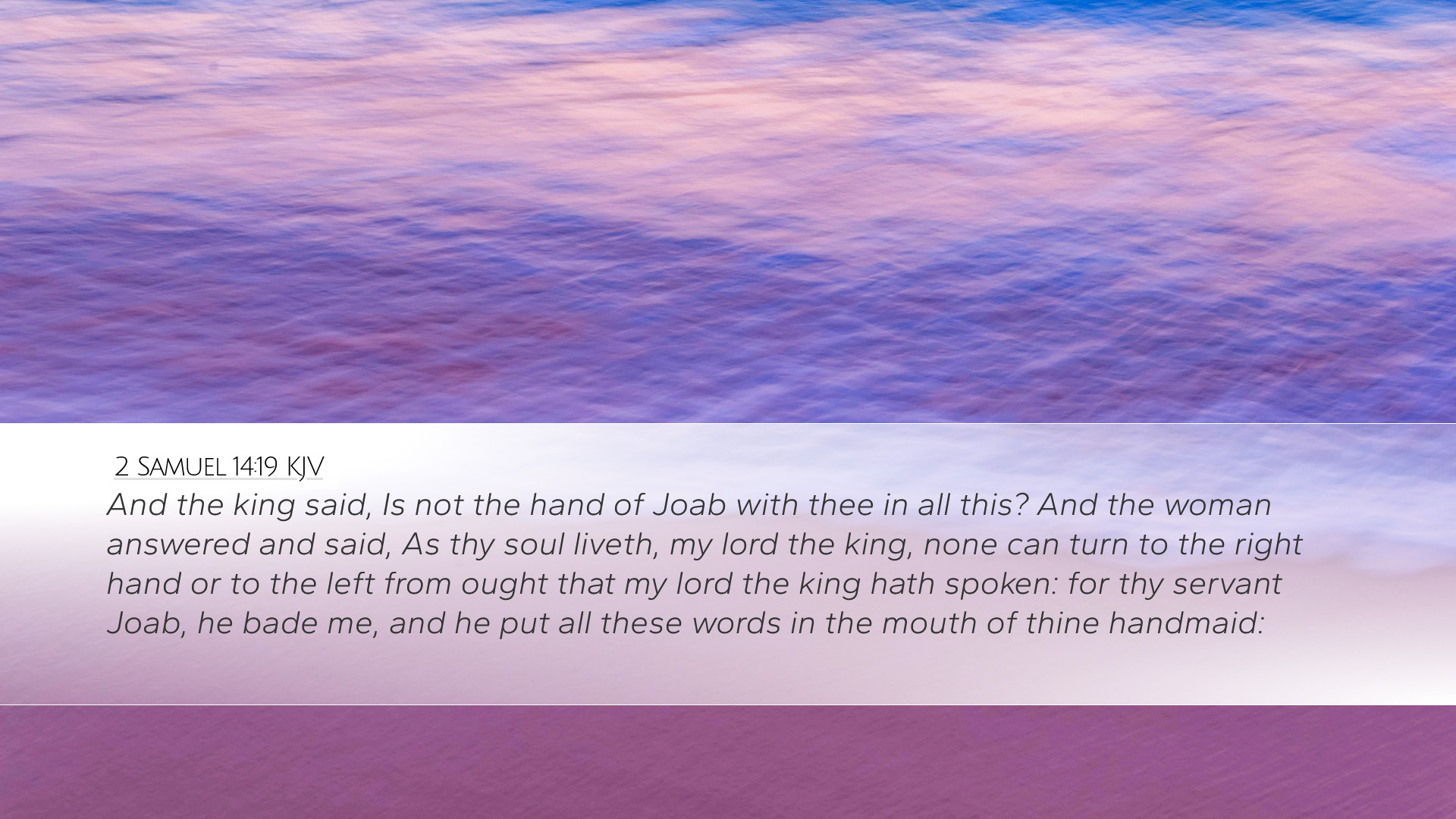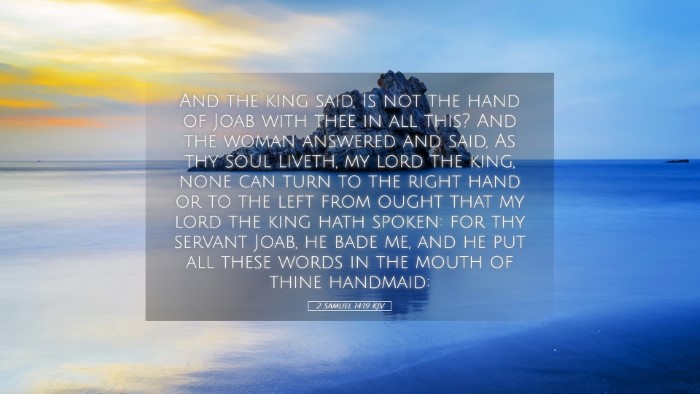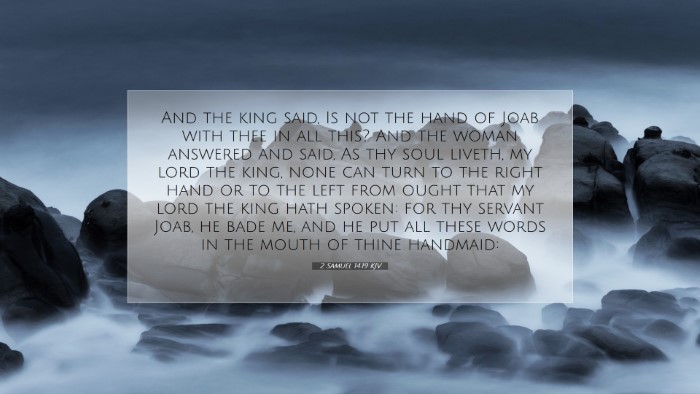Commentary on 2 Samuel 14:19
Verse: 2 Samuel 14:19 - "And the king said, Is not the hand of Joab with thee in all this? And the woman answered and said, As thy soul liveth, my lord the king, none can turn to the right hand or to the left from ought that my lord the king hath spoken: for thy servant Joab, he bade me, and he put all these words in the mouth of thine handmaid."
Introduction
This verse is pivotal in understanding the intricate political and emotional landscape of David’s reign. It comes within the context of a wise woman from Tekoa who has been sent by Joab to present a case to King David regarding his estranged son Absalom. Several themes and interpretations arise from this interaction, shedding light on the manipulations at play, the nature of wisdom, and the heartfelt motives of those involved.
Contextual Analysis
1. Historical Background
The events surrounding this verse occur after Absalom's rebellion and the subsequent murder of Amnon. King David is caught in a web of familial discord and political unrest. Joab, as the commander of David's army, seeks to reconcile father and son while securing his own position. This verse reveals Joab's influential role, as he orchestrates a strategy involving the woman of Tekoa.
2. The Role of the Woman of Tekoa
This woman is portrayed as wise and articulate. Her ability to plead her case effectively illustrates the power of rhetoric and the strategic use of narrative in influencing leadership. By embodying truths that resonate with David's heart, she becomes an instrument through which Joab's intentions are made manifest. Her statement that she cannot stray from the king’s words emphasizes her role in serving both David’s authority and Joab’s plan.
Thematic Insights
1. The Nature of Leadership
King David's reaction to the woman’s words reveals much about leadership. Matthew Henry comments on the king’s discernment of Joab's influence, indicating that wise leaders should remain vigilant against manipulation. David's acknowledgment that Joab is behind this interaction points to his awareness of the political scheming occurring within his court.
2. Manipulation and Integrity
Albert Barnes notes that while the woman’s appeal appears sincere, it is laced with Joab’s ulterior motives. This duality raises questions about integrity in both the roles of preacher and politician. It serves as a cautionary reminder for pastors and leaders to discern the motives behind the words spoken to them and to uphold truth in their counsel.
3. The Complexity of Emotions
The emotional landscape for David is fraught with conflict. Adam Clarke mentions that David’s internal struggle represents a man torn between duty to his son and the sorrow of his past. This highlights a deep human experience that resonates with those in pastoral care; understanding the conflict of emotions can lead to greater compassion in ministry.
Practical Implications
1. Understanding Influence in Ministry
Pastors and church leaders should be aware of how influence works within the community. Just as Joab influences the king through the wise woman, leaders can be impacted by those who have their own agendas. Clarity and transparency must be sought in all interactions, ensuring decisions are made with godly wisdom.
2. The Power of Narrative
Stories can be powerful tools in conveying truth. The woman of Tekoa employs narrative to invoke emotion and provoke action. This serves as a reminder for pastors to use storytelling within sermons and counseling to connect with their congregations genuinely and effectively.
Conclusion
2 Samuel 14:19 serves as a microcosm of the larger narrative surrounding King David’s reign. It illustrates the complexities of leadership, the power of influence, and the importance of remaining true to one’s convictions amidst manipulation. For students and scholars of theology, this passage offers rich ground for reflection on how divine wisdom contrasts with human scheming, a recurring theme throughout scripture.
In examining this text, we are encouraged to seek integrity, wisdom, and understanding in our own lives and ministries, allowing God’s truth to guide us in our interactions with others.


